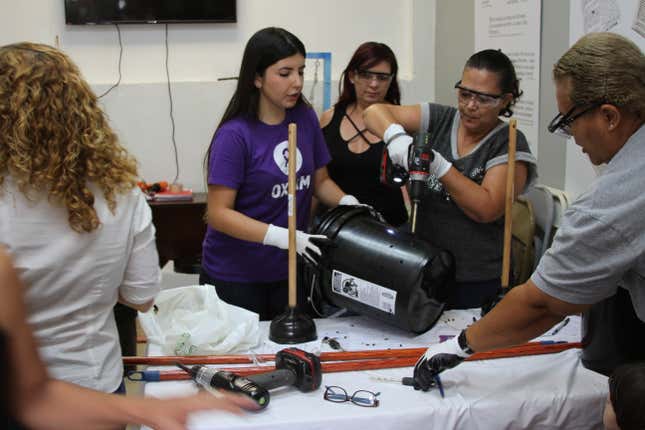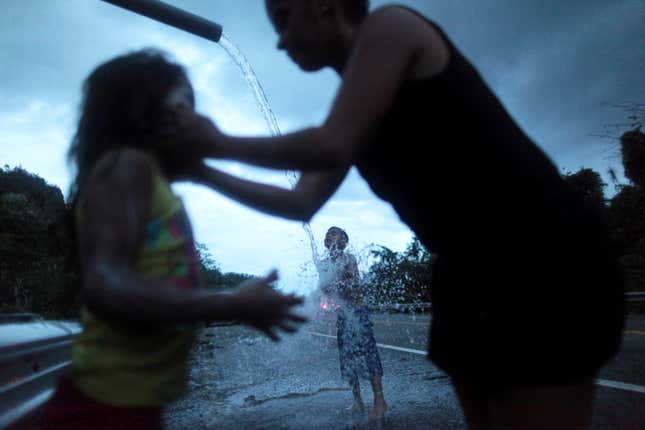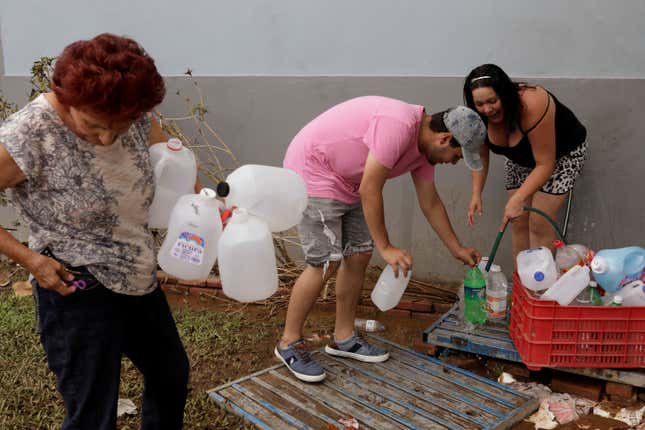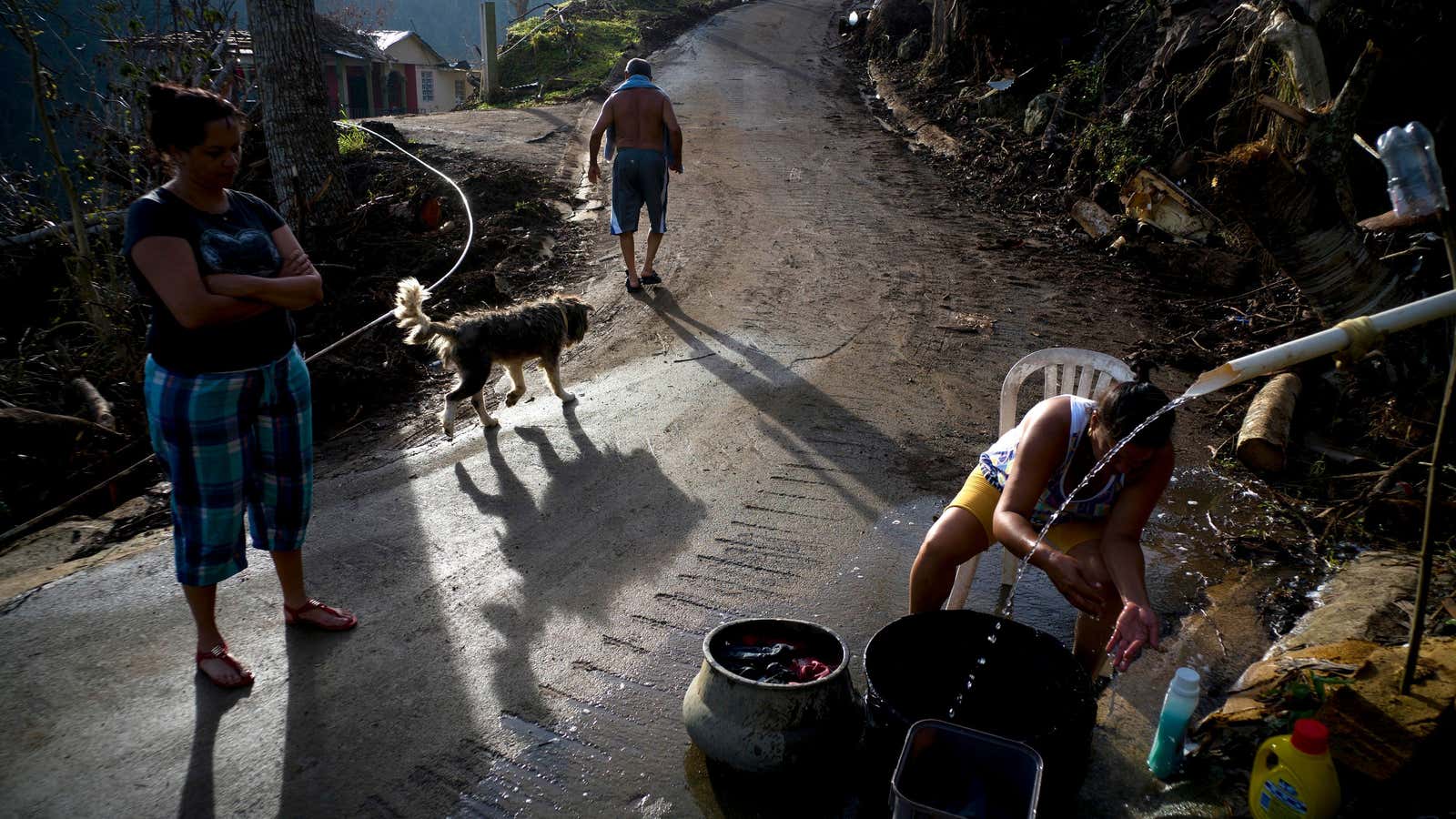Hurricane Maria was a devastating blow for Puerto Rico’s infrastructure—and for women’s hard-earned advances in society.
The category-4 storm hit a year ago this week, taking out the island’s entire electrical grid with it. About 3,000 people are estimated to have died. Without power, water service also stopped. For months many Puerto Ricans, especially in rural areas, had to partake in the arduous labor a life without clean water entails: procuring the water, rationing supplies, and washing by hand, among other chores.
According to a new Oxfam report, women carried the brunt. “Men did indeed feel the pinch—especially around finding and transporting water—but they were typically not the ones carrying the full physical and emotional weight of managing all the household demands,” the study found.
The authors of the report interviewed about 120 Puerto Ricans in eight municipalities. They discovered that women were more likely than men to report problems with chores such as cooking, doing laundry, and bathing. Much as their grandmothers, women in Puerto Rico remain their families’ main caregivers and are responsible for most of the work inside the home. But in recent decades, that job became much easier as rural areas gained access to running water and electricity.
The hurricane was therefore a real and painful setback for Puerto Rican women. Consider this: the weight of the 80 to 100 gallons of water an average American uses a day is about 800 pounds. Women had to quite literally carry much of that load, from hauling water for flushing the toilet to scrubbing and wringing heavy, wet clothes.
“Women in more developed regions may end up even more disproportionately impacted,” the report concluded. “A disaster reverses the advances of development, and reverses progress for women as well.”
Here are some of the tasks that Maria made more difficult for women.
Laundry
After Maria, the family’s clothes and linens had to be washed by hand. This task could last anywhere from two to four hours per load, women reported—and that’s without including the trip to the river to procure the water, which made the process even longer. Bed sheets were especially troublesome, because of their added weight when wet.

Puerto Ricans adapted with a few clever inventions, like a washing machine made with two buckets. The washboard also made a major comeback.
Bathing
A quick shower was replaced by a time-consuming process that involved gathering water, hauling it to the bathroom, and using a small container to splash it over the bather. (An inventive couple attached a spigot to a large detergent bucket and put it above the bathtub—a welcomed improvement.) Aside from bathing themselves, women often had to help others, including children. Part of the stress, the interviewed women reported, was keeping playful children from wasting water.

The work became even harder for warm baths. One woman interviewed by Oxfam said she had to set aside about two hours a day to heat up water for her family to bathe. Some people used rainwater to bathe, but because it gets easily contaminated, many developed skin rashes.
Cooking and cleaning
Women were also in charge of keeping the home clean—at least to the extent they could without water. For some, that meant using disposable plates and cutlery. Keeping out pests and smells was also especially difficult.

Many cooking processes also include heating water. This meant that women had to find new ways to feed their families, or they resorted to eating canned food. This took a toll on families’ health and budgets.
Lessons from Hurricane Maria
The best way to solve the problems caused by the lack of running water post-Maria is to have a more resilient electrical grid. But Puerto Ricans shouldn’t hold up their hopes for that. One year on from the disaster, the island’s own governor (link in Spanish) has said that the electric system is just as vulnerable as before Maria—or even more.
The government must therefore prepare people to better weather the powerless period after a storm. Oxfam recommends making solar laundromats available, handing out water tanks and pumps, and doing a better job of supplying water to residents.
